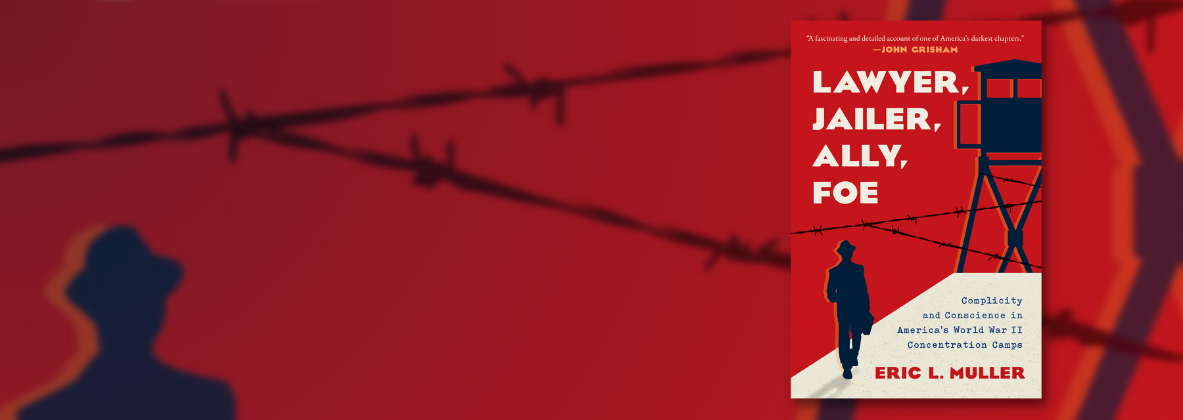

Eric L. Muller, Dan K. Moore Distinguished Professor of Law at the University of North Carolina School of Law, joined for a discussion of his newest book, Lawyer, Jailer, Ally, Foe, that explores the complicity of the lawyers who helped run the WRA’s concentration camps.
Lawyer, Jailer, Ally, Foe brings to life the stories of three white lawyers with contradictory instructions—provide legal counsel to the prisoners, but keep the place running—illuminating a shameful episode of American history through imaginative narrative deeply grounded in archival evidence. What emerges is a powerful look at the day-by-day, brick-by-brick perpetration of racial injustice—not just by the system itself, but by the men struggling to do good within it.
Muller was joined by Mia Yamamoto, criminal defense attorney and daughter of Elmer Yamamoto, a lawyer in the Poston concentration camp, to discuss the issues of justice and race that emerge from the book.
The JANM Book Club is a series of Public Programs that highlights new publications by Japanese Americans or related to Japanese American history and culture.
Lawyer, Jailer, Ally, Foe is available to purchase at the JANM Store. BUY NOW

About the author
Eric L. Muller is the Dan K. Moore Distinguished Professor of Law in Jurisprudence and Ethics at the University of North Carolina School of Law.
Photo by Amy Stern

About the book
It is 1942, and World War II is raging. In the months since Pearl Harbor, the US has plunged into the war overseas—and on the home front, has locked up tens of thousands of innocent Japanese Americans in concentration camps, tearing them from their homes on the West Coast with the ostensible goal of neutralizing a supposed internal threat. At each of these camps the government places a white lawyer with contradictory instructions: provide legal counsel to the prisoners, but keep the place running.
In Lawyer, Jailer, Ally, Foe, Eric L. Muller brings to vivid life the stories of three of these men, illuminating a shameful episode of American history through imaginative narrative deeply grounded in archival evidence. As we look through the lawyers’ sometimes clear and sometimes clouded eyes, what emerges is a powerful look at the day-by-day, brick-by-brick perpetration of racial injustice—not just by the system itself, but by the men struggling to do good within it.
Read a review of this book by Arthur A. Hansen on Discover Nikkei. READ NOW
